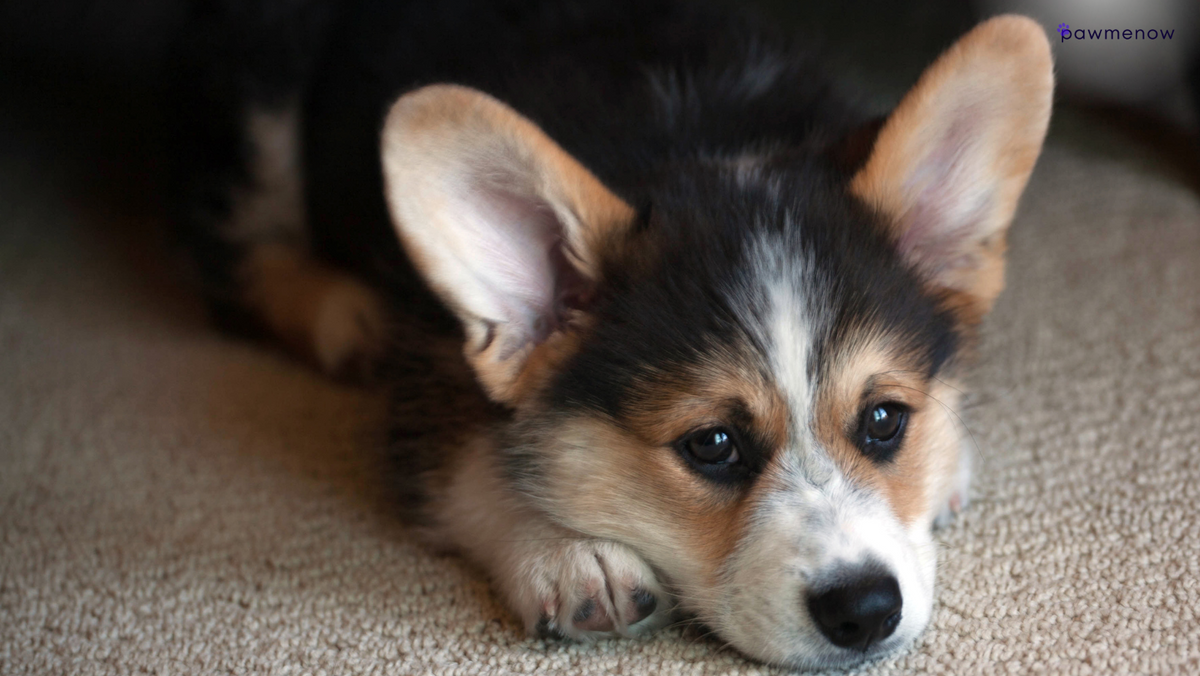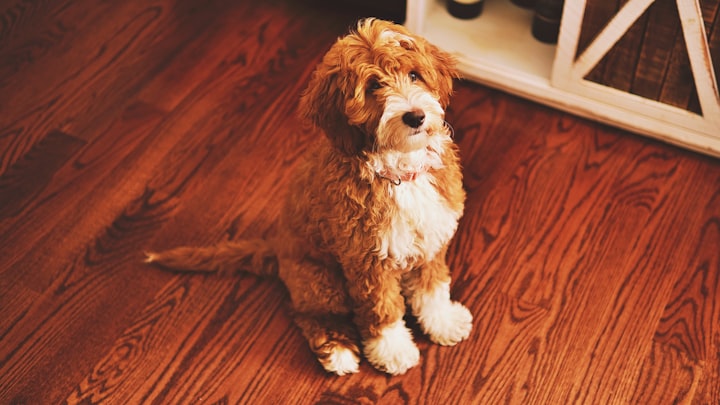Corgi Separation Anxiety: Are They OK to Be Left Alone?
Is your beloved Corgi struggling with separation anxiety? You're not alone. Many Corgi owners face this common concern and are eager to find ways to help their furry friends cope with being alone. In this article, we'll explore effective techniques and tips to ease your Corgi's separation anxiety. 🐾

If you're a proud Corgi owner, you already know that these little furballs are full of love and energy. But have you ever wondered if your Corgi is okay to be left alone? Or, maybe you already observed your Corgi's anxiety and you want to take action.
In this article, we'll delve into the world of "Corgi separation anxiety" to help you understand your furry friend better.
Are Corgis OK to be left alone?
The short answer is yes, Corgis can be left alone, but like any other breed, it comes with certain considerations.
However, it's important to remember that each Corgi is unique, and some may require more attention than others.
How long can a Corgi puppy be left alone?
Corgi puppies, on the other hand, have different needs. Their bladders are tiny, and they crave more companionship. Ideally, a Corgi puppy should not be left alone for more than 2-3 hours during the first few months. Gradually increase this time as they grow older and become more independent.
How can I help my Corgi with Separation Anxiety?
Corgi separation anxiety is a common concern among pet owners. To alleviate this, start by gradually increasing the time your Corgi spends alone. Offer engaging toys and create a comfortable space for them. Establish a routine to help them feel secure and reassure them with love and attention when you return.
Tips to Help Your Corgi with Separation Anxiety
| Tip | How To |
|---|---|
| Gradual Alone Time Increase | Gradually extend the time your Corgi spends alone, starting with short intervals and increasing them over time. This helps them get accustomed to being alone. |
| Engaging Toys | Provide interactive and engaging toys that can keep your Corgi mentally stimulated and distracted while you're away. Puzzle toys and treat-dispensing toys are excellent choices. |
| Comfortable Space | Create a safe and comfortable space for your Corgi when you're not around. This can be a cozy crate or a designated area with their bed and familiar items. Make it inviting and secure. |
| Establish a Routine | Dogs thrive on routine. Establish a daily schedule that includes feeding, playtime, walks, and alone time. Predictability can help reduce anxiety. |
| Positive Reinforcement | Use positive reinforcement techniques to reward your Corgi for calm behavior when you leave and return home. This can include treats, praise, and affection. |
| Desensitize Departures | Practice short departures without making a fuss. This helps your Corgi become less anxious when you leave and prevents heightened excitement when you return. |
| Ignore Attention-Seeking Behavior | If your Corgi exhibits attention-seeking behavior when you're getting ready to leave or return, ignore it until they calm down. This discourages clinginess. |
| Professional Help | If your Corgi's separation anxiety is severe and persists despite your efforts, consider seeking the assistance of a professional dog trainer or behaviorist. They can provide specialized guidance and techniques. |
| Medication (In Consultation with a Vet) | In extreme cases, your vet may recommend medication to help manage your Corgi's anxiety. This should only be considered after consulting with a veterinarian. |
How do you train a Corgi to be alone?
Training your Corgi to be alone takes patience and consistency. Begin by leaving them for short periods and gradually extending the duration. Use positive reinforcement techniques and reward them for calm behavior when you come back.
Positive reinforcement techniques involve rewarding your dog for displaying desired behaviors, making them more likely to repeat those behaviors in the future. Here are some positive reinforcement techniques you can use to reward your Corgi for calm behavior when you return:
- Verbal Praise: Offer enthusiastic verbal praise when you see your Corgi behaving calmly. Use an upbeat and cheerful tone to convey your approval.
- Petting and Affection: Give your Corgi gentle petting and affection when they are relaxed and not overly excited. Stroke them calmly to reinforce their calm behavior.
- Treats: Offer small, tasty treats as a reward for calmness. You can use treats specifically designed for training, or cut larger treats into smaller pieces to avoid overfeeding.
- Favorite Toys: Some dogs respond well to being rewarded with their favorite toys. Offer a beloved toy as a positive reinforcement when they remain calm.
- Clicker Training: If you use a clicker for training, click and then treat immediately when your Corgi displays calm behavior. This helps create a strong association between the clicker sound and the reward.
- Playtime: Allow a short play session as a reward for calmness. This can be especially effective if your Corgi enjoys interactive games like fetch or tug-of-war.
- Calm Attention: Give your Corgi your undivided attention when they are calm and relaxed. This can be a reward in itself, as they value your company.
- Combined Rewards: You can also use a combination of the above rewards, such as verbal praise along with a treat or petting.
Remember these key points when using positive reinforcement:
- Timing is crucial. Reward your Corgi immediately after they display the desired calm behavior to make the connection between the behavior and the reward clear.
- Be consistent. Reward calm behavior every time it occurs, at least during the initial stages of training.
- Keep rewards appropriate. Adjust the rewards based on your Corgi's preferences and what motivates them.
- Stay patient and positive. Positive reinforcement is about creating a positive learning experience for your dog. Avoid punishment or scolding for anxious behavior, as it can exacerbate separation anxiety.
Do Corgis Like to Be Crated?
Corgis, like many dogs, can feel safe and secure in a crate when it's introduced properly. It can serve as a den-like space, but it's important to ensure that they associate the crate with positive experiences, not punishment.
FAQ
Do Corgis Have Bad Separation Anxiety? Corgis can have separation anxiety, but not all of them do. It varies from dog to dog. Early socialization and training can help reduce the likelihood of severe separation anxiety.
Do Corgis Bark When Left Alone? Some Corgis may bark or howl when left alone due to anxiety or boredom. Proper training and providing mental stimulation can help curb this behavior.
Do Corgis Need Constant Attention? Corgis are social dogs and enjoy spending time with their humans. While they don't need constant attention, they thrive on interaction and playtime.
Is It Common for Corgis to Have Separation Anxiety? Corgis are known for their loyalty, which can sometimes lead to separation anxiety. It's not uncommon, but with the right care and training, it can be managed.
💬 Final Verdict: Can Corgis Be Left Alone?
Corgis can be left alone, but it's essential to be mindful of their unique needs and tendencies. Corgi separation anxiety is a real concern for some, but with love, training, and patience, you can ensure your Corgi is a happy and well-adjusted companion even when you're not around. Remember, every Corgi is an individual, so pay attention to your furry friend's signals and adjust your approach accordingly.
❤ Related Corgi article that you would enjoy:







Comments ()